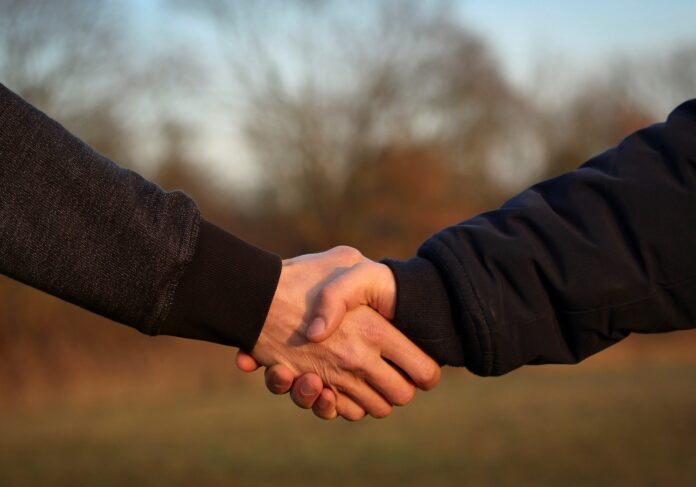In this period, whether we are in one of the “red zones” or in any other part of Italy, everyone must face a change in our lifestyles. We need to “avoid hugs and handshakes” and maintain “an interpersonal distance of at least one meter”. These are some of the anti-Coronavirus hygiene measures outlined in the Decree of the Presidential Council of Ministers, signed on March 4th and enforced throughout Italy until April 3, 2020.
At first glance, this “imposed distance” in social interactions could prove to be (if not a relief) at least a curious social experiment. Let’s think of the normally overcrowded places, like public transport. Yet, all that glitters is not gold. Interpersonal distance is part of the non-verbal language, that is the body language, through which we communicate more than we do with words.
According to the classification made by the American anthropologist Edward Hall (who died in 2009), the one-meter distance falls within the “personal distance”, that is, the one adopted between friends and with people who you have a relationship of trust. Nevertheless, it is an extremely difficult distance to maintain at the bar, on the subway or in any urban context.
In a situation like this, everybody suddenly realizes the value of gestures, which is older than human-kind, and is usually taken for granted.
Let’s consider the handshake. It is an ancient ritual, also practiced at the time of the ancient Egyptians, for whom this gesture expressed the achievement of an agreement. In our culture, this simple gesture has taken on various values: presentation, greeting, thanks, congratulations. And in general, it means to welcome and be opened towards the other. A gesture so codified that giving it up is not trivial.
For this reason, the WHO (the World Health Organization) has disseminated, through the popular social network Tik Tok, a list of alternative greeting methods in the Coronavirus period: from the traditional waving of the hands, to the touching of the elbows, from Indian namastè to the foot-shake that is going viral on the web.
The attention of a large organization, such as WHO, on greetings’ methods, highlights the importance of a physical gesture that no phonecall or Whatsapp audio can replace. Aristotle said that man is a social animal, and the American psychologist Abraham Maslow (in the pyramid of needs which he developed in the mid-50s of the past century) inserted the need for sociality and belonging, immediately after the basic needs like to eat and to feel safe.
For this reason, changing our social habits is not trivial. And then creativity is welcome:
foot-greetings, but also that of those who, on the border of the red zone of Codogno, have even “exploited” the police van as the center line of a baseball field. Marco and Filippo did it, friends and teammates who were unable to train together because they were separated from the border line. It is here that the two boys met and, surrounded by a small improvised audience, they started to dribble. An alternative way in order not to give up an opportunity for socializing such as sports training and to maintain a daily life despite the emergency.
Internet allows us to do almost everything: get informed, shop, buy clothes, pay bills, chat with others. But it doesn’t allow us to shake someone’s hand or to play sports. The emergency is a food of reflection. On the other hand, being “deprived” of normalcy is perhaps one of the few ways to really appreciate it.








